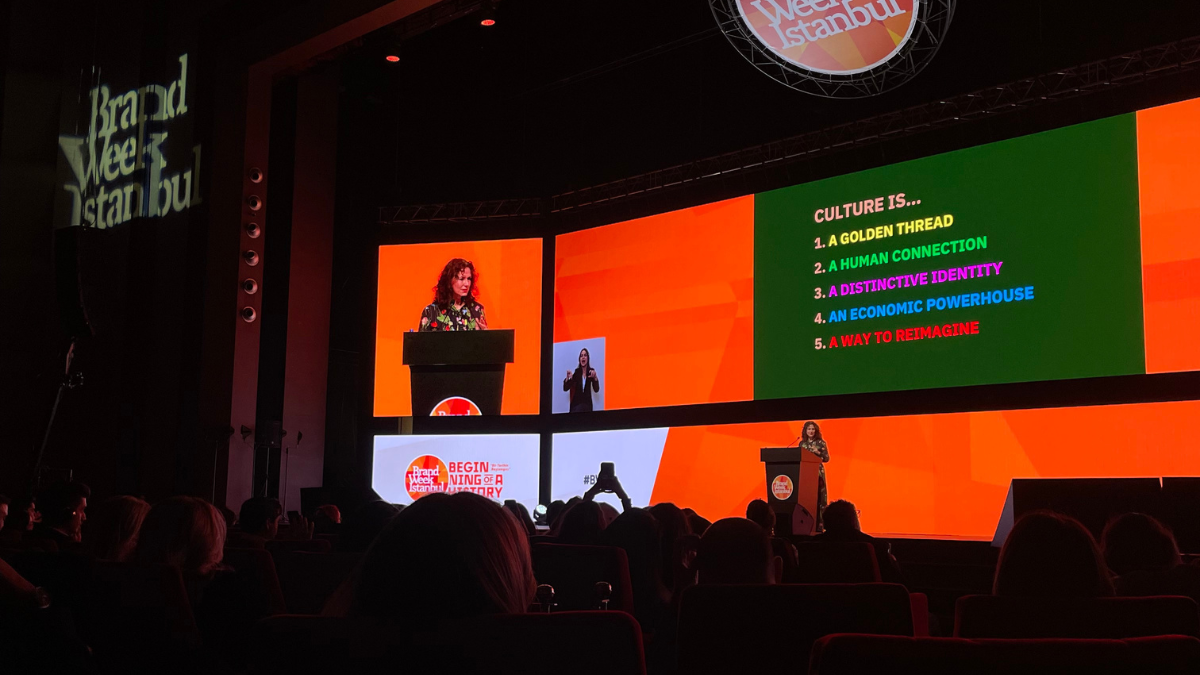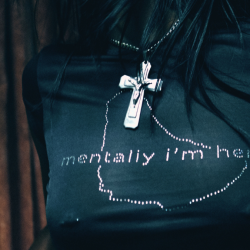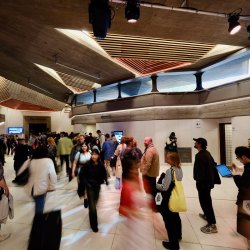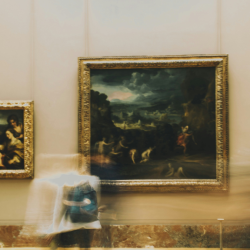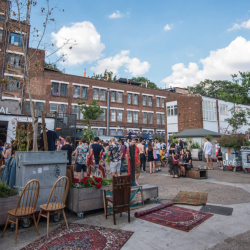On 6 November, the Director of the World Cities Culture Forum, Laia Gasch, took the stage at Brand Week Istanbul to speak about the importance of culture and the creative industries. Following her session, Gasch sat down with MediaCat’s Content & Social Media Editor, Svilena Keane, to discuss her recent research and how cities can support creatives.
Hi Laia. Could you please briefly introduce yourself and the World Cities Culture Forum?
Hello, my name is Laia Gasch and I’m the Director of the World Cities Culture Forum. We are a network of 45 global cities across six continents and we believe in the power of culture to create thriving cities. We are a group of leaders, city leaders, deputy mayors, commissioners, and directors of cultures in city municipalities. We work with this leadership to make the case for culture and the creative industries as a key part of urban policy. What we say is in order for a city to be a successful global city, it needs culture.
At World Cities Culture Forum, you refer to culture as a ‘golden thread’ for cities. What do you mean by that?
We call it the golden thread because we believe that culture can deliver against a lot of urban priorities. It creates jobs and is part of a growing economy. It boosts tourism; in London, four of five visitors say the main reason they visit is culture. Culture is also a key driver of regeneration and breathing life into new areas. There’s a lot of creative districts emerging in cities all over the world.
We all know the stories of creatives moving into cheap areas of a city and making them more liveable. And there are some challenges with that, but we know that that happens. Creatives can create communities and breathe new life to new areas. Culture is what gives a city its identity and story; and in a globalised world where we’re all wearing the same trainers and drinking the same coffee, it’s so important that cities have an identity. And then finally, culture is about being healthier and being happier.
We know that if you take part in culture you’ll live longer, because culture is about being connected and forming human connections. Taking part in culture reduces dementia and improves mental health. There’s all these benefits. That’s why we think it’s a golden thread in urban policy.
World Cities Culture Forum recently published a report looking at the global trends for culture in cities. Could you give us an overview of what we’re seeing today?
What we’re seeing is more and more cities realising the power of culture. When we started the network about 12 years ago, we were eight cities, and we wanted to compare how creative we were. And we said to each other, let’s collaborate, let’s not compete. It’s much more interesting if we collaborate and we make the case for other cities to be creative.
12 years on, we’re now 45 cities. A lot of them have got cultural strategies and policies in place to boost that part of the cities. So that in itself is a trend. Culture used to be a bit of a niche policy, and now it’s much more mainstream. We see different policies and areas, for example, the nighttime economy. That is an area that a lot of cities are now looking at, and it comes from culture and the creative industries because theatres and cinemas and music venues, it all happens in the night, but they’re very fragile infrastructure. We need to change the perception that the nighttime is all about drinking, crime and noise — that’s not the case. We need to look after our venues and look after what happens at night. So that’s a trend, a nighttime economy.
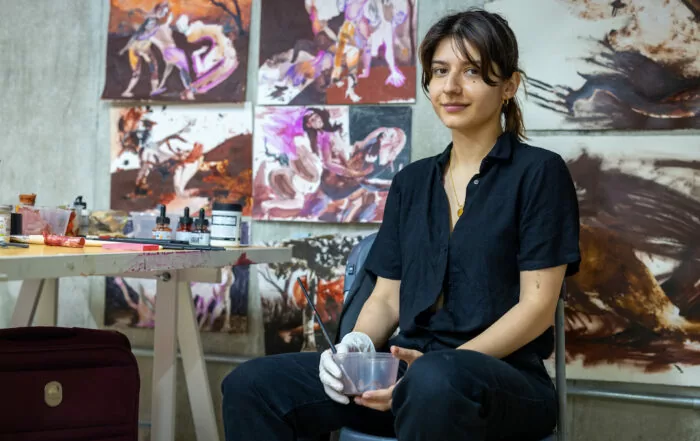
Another trend is around protecting affordable workspace because with prices going up, artists cannot afford to have studios and creative workspaces. A lot of cities are looking at how to protect affordability in a way that is future proof. There are projects like the Creative Land Trust that are being set up in San Francisco, London, Austin, Sydney, and in other cities as well. So that’s another trend, affordability for artists.
Artists have had a lot of difficulties since the outbreak of the pandemic. You recently conducted research with King’s College London and found that the creative industries are still experiencing ‘long Covid-19 symptoms’. What challenges are they facing?
That’s right. Our research with King’s College demonstrated that Covid-19 had a massive impact on venues and arts organisations. A lot of grassroots community organisations really suffered, and the recovery has been very slow. That’s what our research showed because often those organisations were the first to be hit by the pandemic and the last ones to open. It was a really long time that they were not able to operate.
The recovery has also been slow mainly because the pandemic exposed some systemic problems that we have in the creative industries. There’s low pay for a lot of the workforce. A lot of the workforce are freelancers and self-employed. There’s lots of job insecurity. During Covid-19, a lot of people lost their jobs, moved to other industries and never came back. So, we’ve lost a lot of talent. And that’s what we call the long Covid-19 symptom.
For a lot of organisations, the recovery has been really hard work because we’ve had inflation, we’ve had high rent, and a cost-of-living crisis. For some of those particularly grassroots organisations and small not-for-profit organisations, it has been very difficult.
You also helped establish London’s Creative Enterprise Zones. Is it true that these zones were less severely impacted by Covid-19?
That’s right.
What was the aim of this programme, and what has its impact been?
So, this is a program that London set up a few years ago. And the origin of the program was this problem that we have, that artists move into cheap areas of the city. They make it more liveable and desirable, and then the developers come in and build expensive flats and the artists have to move on. And we were saying that we’ve got to find a way for artists to put down roots where they go, and for them to be able to stay in the areas that they’ve helped thrive. So, we created Creative Enterprise Zones.
There’s now 12 across London. It’s been very successful. And what it is, is a designated zone where you are not able to close down affordable workspace. In fact, you’ve got to increase it. So, it’s on the local authority and London’s authorities to ensure that if there’s a loss of affordable workspace, this is replenished. That is part of the policy. We’ve put policies in place in order to hardwire affordability in those creative enterprises, so the artists and the creatives can stay. And we’ve also put things like skills development, business development, training for businesses in those areas.
That’s been very successful. So successful, as you said, that during Covid-19 those zones had markedly less impact. Covid-19 had less impact on those zones than the rest of the city, because they’re more protected. There’s more policy and projects that ensure that those small businesses (a lot of them are small businesses) are protected.
Finally, what would you say is the most important thing that cities can do to help support creatives and freelancers today?
That’s a really good question. There is no one single silver bullet, unfortunately. You have to do a number of things. You have to retain affordable workspace — that is really important for creatives. That is one of the things that will keep creatives in a city.
But you also need to a lot more than that. You need to enshrine it into the education system. You need to value it in schools. You need to invest in those industries so they can grow and export. We call it acupuncture policy. You’ve got to do a few things at the same time in order to really boost those. In order to be a creative city, you have to have creatives in the city.
Featured image: Laia Gasch at Brand Week Istanbul




















